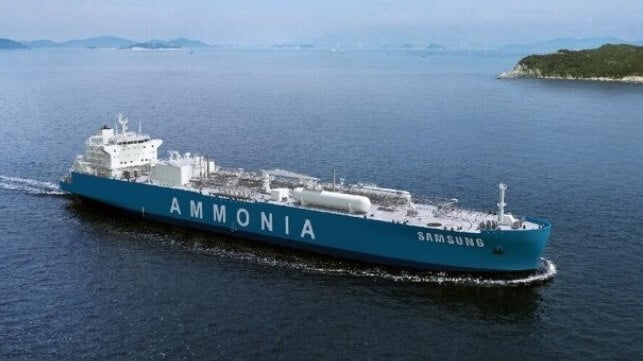Study: Green Corridors Will Need Subsidy Support to Get Started

The IMO's planned global fuel standard for low-carbon energy will not be enough to underwrite the growth of the most ambitious "green corridors," the designated A-to-B routes intended as incubators for decarbonized propulsion, according to a new study from UMAS, Global Maritime Forum and UCL. Even when combined with regional programs like the EU Emissions Trading System (ETS), "compliance-driven green shipping corridors are unlikely to form" because of the high cost of new e-fuels - unless supported with some amount of subsidy.
More than 60 different green corridor partnerships have been announced to date, by UMAS' tally, some more advanced in planning than others. Since green fuels will be far more expensive, and will need new support infrastructure, the details of each corridor - and how it is affected by changing regulations - are needed to evaluate the business case. UMAS examined specific vessel classes, cargoes and routes, estimating total cost of ownership for four different fuel choices for each one. The authors then estimated the cost gap between the least-expensive compliance option and the cost of running purely on e-fuels on a green shipping corridor. Over time, the cost difference adds up: In one example based on a 45,000 cubic meter gas carrier, the extra cost of participating in a 100-percent e-ammonia green corridor amounted to $72 million over four years.
Less ambitious options exist and cost far less - for example, running on natural gas-based blue ammonia - but the price differential for a pure e-fuel operation is daunting without support. More complex policy arrangements - like pooling agreements that allow the greenest participants to sell "overcompliance" credits to other shipowners - could help incentivize green corridor development, but ultimately some amount of subsidy will likely be required, especially in the early years when IMO regulations are just beginning to phase in.
"The most important role Green Corridors can play is to coordinate and kick-start the value chain for tomorrow’s shipping fuels. Participants in corridors will need to be creative in how they leverage a range of regulations, but it’s clear from this work that the scale of their impact will depend on policymakers delivering targeted support for e-fuels," said Jesse Fahnestock, Director of Decarbonization at the Global Maritime Forum.
